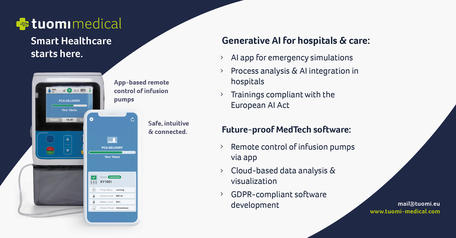 en-uklanguageSelector_en-uk
en-uklanguageSelector_en-ukAI in Medicine: Human Expertise Remains Indispensable
14.05.2025
Artificial intelligence (AI) is rapidly reshaping both the world of work and the healthcare sector. A frequently cited PwC study suggests that AI could boost global GDP by up to 15% by 2035. In medicine, expectations are high: AI systems promise to reduce the workload for healthcare professionals, streamline processes, and offer valuable decision support. Yet one thing remains clear: technological progress cannot replace human expertise.
AI as a Support System - Not a Decision-Maker
The key question is no longer if AI should be used in healthcare, but how – and under what conditions. AI is a powerful tool for supporting clinical decisions, but it must be understood for what it is: an assistant, not a replacement.
AI systems excel at analyzing vast datasets, detecting patterns, and generating evidence-based suggestions based on prior training. This enables healthcare professionals to make better-informed decisions and spend more time on what matters most: patient care.
Human Judgement Remains Essential
Even the most sophisticated AI solutions are only as good as the data they are trained on – and they can make mistakes. More importantly, AI lacks the uniquely human qualities that are critical in medicine: ethical reasoning, empathy, and intuition.
That’s why the integration of AI in digital health must be purposeful and well-planned. When implemented thoughtfully, AI tools can significantly enhance the quality and efficiency of healthcare delivery.
To learn more about tuomi’s AI consulting services, please visit our consulting page.


